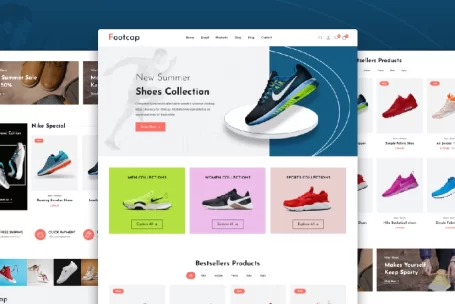Have you ever wondered which on-page element carries the most weight for SEO? When you establish a website for your company, there are a few fundamentals that are essential for you to have a firm grasp on first.
One of these foundations is known as SEO, which stands for search engine optimization. SEO is a collection of online tactics that you may employ to make your website more noticeable and accessible to as many people as possible through a search engine such as Google.
You need to be aware of various forms of SEO, such as on-page and off-page SEO, as you prepare to launch an SEO campaign.
This is important information to have. The success of your website will largely depend on how well each of these categories, which each contain a variety of crucial components, are implemented.
When it comes to on-page SEO, there are a variety of ranking criteria that need to be optimized in order to achieve the results you want. Yet, research has shown that the title tag is the component that has the most impact on on-page SEO.
That being said, if you want to increase the ranking of your website in search results and make it more competitive, you will need to learn how to optimize the title tags on your website. So which on-page element carries the most weight for SEO? This article will provide some assistance in answering that question.
What’s on-page SEO?
The process of enhancing the search page visibility by modifying the content, titles, and internal links of a page is referred to as on-page search engine optimization (SEO). On-site search engine optimization is another name for this.
To put it more succinctly, it refers to enhancing your website’s readability for search engines. As a result, the website in question needs to have excellent on-page search engine optimization.
Nevertheless, which On-Page Element is the most important when it comes to SEO?
When it comes to search engine optimization (SEO), the on-page element that is most important is called the title tag.
What is a title tag?
Every web page needs to have a title, and the HTML element that does that job is called a title tag. When you conduct a search for information using the internet, the search engine results page (SERP) will display a clickable headline alongside the results.
A title tag is extremely significant for SEO, usability, and social media sharing on a website. Because of this, it needs to be a precise and candid summary of the material easily visible on the website.
Why is title tag important as on-page element that carries the most weight for SEO?
It is the title of the page that first appears on the SERP. On the basis of a web page’s title, a person on the SERP decides to click on the title tag to enter the website.
The title tag is important for search engines to understand what your web page is about and for human users who are scanning search engine results. A well-written title tag can entice users to click on your website link over others, and can even improve your website’s click-through rate in search results.
In addition to its impact on search engine rankings and user behavior, title tags are also crucial for social media sharing. The title tag is typically used as the link text on social networking networks like Facebook and Twitter.
This means that a poorly written title tag could result in a less appealing or inaccurate description of the content being shared on social media, potentially leading to fewer clicks and engagement.
When crafting your title tag, it’s important to keep it concise and relevant to the content on the page. Aim for a length of around 50-60 characters, as longer titles may get truncated in search results. Including targeted keywords in your title tag can also help improve your website’s relevance and visibility for those keywords in search results.
Overall, the title tag is a critical on-page element for SEO, user experience, and social media sharing. Crafting a well-written and relevant title tag can help improve your website’s overall performance and visibility.
3 reasons why title tags are important for on-page SEO
In a nutshell, a title tag clarifies a page’s content for search engines. In addition, it serves as the very first impression that visitors to your site will have. Three main reasons a title tag is important for on-page SEO are discussed below.
1. Search engine results page (SERPs)
The title tag is the first thing site visitors see and affects the user experience greatly.
A well-written title tag can boost not only click-through rates from search results, but also user engagement and decrease bounce rates. A concise and appropriate title tag helps visitors rapidly assess if the page content matches their interests or needs.
A title tag that gets people’s attention can also help establish your website’s brand identity and set it apart from competitors. Using the language and phrasing relevant to your target audience and representing your brand voice will help you connect with your visitors and enhance brand recognition.
Avoiding clickbait titles while establishing an impressive and meaningful title tag is critical. This can hurt your website’s credibility and raise bounce rates as users realise the content doesn’t meet their expectations.
2. Visibility on web browsers
In most cases, plenty of tabs are simultaneously active on your browser. What makes it possible for us to distinguish a specific web page?
We examine the title tags of the websites in order to differentiate amongst the many tabs we have open. So, the page title must contain relevant and descriptive keywords to avoid losing traffic and confusing your target audience.
Hence, title tags enable us to understand the content of a web page even when multiple tabs are open at the same time. So, the title tag is an on-page element that carries the most weight for SEO.
3. Relevance on social media networks
We employ many methods in an effort to increase visits to our site. Social media is one of the most crucial methods of grabbing people’s interests. As a result, only the title tags of our websites are displayed when we exchange links on these services. If you want visitors to visit your website, you need to write catchy and enticing title tags for the links.
You should add some flair to the title tag if you want people to click through from social networking sites. There are various rules you must follow when crafting an effective title tag. For example, it must be distinct, contain no more than 60 characters, and feature relevant keywords early on.
How to write attractive title tags as on-page element that carries the most weight for SEO?
Let’s figure out how to make titles for our websites that people can’t resist clicking on:
- Short and simple: A good title tag should not exceed 60 characters while grabbing attention with crisp information.
- Relevant keywords: Do not stuff your keywords; use them wisely. The tag should not look robotic.
- Unique: A good title tag is unique and attractive for each web page. Don’t repeat title tags even if the content is similar.
- Easy to understand: A suitable title tag should also be straightforward and understandable.
Other on-page elements that carries weight for SEO
Meta descriptions
The meta description is an on-page element that helps explain and summarise the content of your website. This is present on every web page. Internet users and search engines benefit from the clarity that this provides regarding the page’s content. A catchy meta description can make people click on a link out of curiosity.
Focus keywords
A keyword is a notion or subject that clarifies the topic of your material and very important for SEO. As per SEO, a keyword is a term or phrase that a person conducting an internet search types into a search engine.
These words connect the information someone is looking for and the content you provide to fulfil that requirement. Crawling bots of Google look for particular keywords to categorize content and websites for organic traffic.
Closing thoughts on what on-page element carries the most weight for SEO
Hence, if you were wondering which on-page element is more important for SEO, the data presented above should clear that up for you. Getting organic traffic and good rankings will be easier if you keep the above-mentioned factors straight.
It needs assistance to optimise a multi-page website. As a result, think about working with a professional SEO agency, such as Notion Technologies, to simplify your life. Get in touch with us if you’re interested in learning more about the services we offer and how we can assist you in creating a fantastic website.



